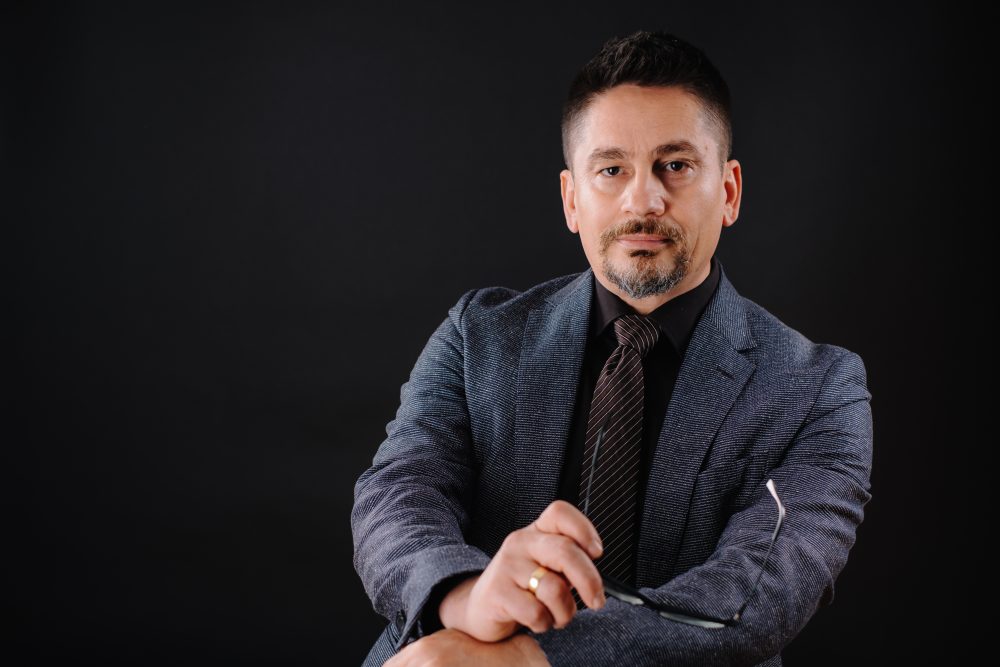The IT sector is currently the most dynamic field of human creation in which people and machines intertwine.

In 2020, Dr Nebojša Stanković, from the Stanković & Partners Law Firm from Niš, will celebrate two decades of practising law. The year 2020, with two 20s, coincides with Mr Stanković’s 20-year-long-law practice and thus assumes a whole different dimension for him.
How are you going to celebrate this jubilee, 20 years of practising law?
– As one of the best students of the Faculty of Law in 1991, it was extremely unusual at that time, as it is today, for a law graduate like to me start his professional career in a privately-owned IT company, in a sector that was still in its infancy. Once the wars in the Balkans subsided, I had to carve a new path for myself so, in late 2000, I found myself practising law as an attorney. Luckily, the numbers in the jubilee year of 2020 don’t only mark the passage of time but emit certain energy that is created by many years of hard work which is based on creating.
As a lawyer with impressive practice and results in the field of human rights and as a lecturer at the Law Academy of the Bar Association of Serbia, at the invitation of the Council of Europe, you have participated in the implementation of projects related to the European Court of Human Rights’ (ECHR) case law in the Western Balkan countries. Could you elaborate on the project?
– We have witnessed that, in the previous period, over 90% of all petitions filed with the European Court of Human Rights (ECHR), regardless of which countries they arrived in Strasbourg from, were rejected. For quite some time, people have been right to question whether the ECHR has begun to violate the very principles and rights on which it was founded. In an attempt to resolve the situation, the Council of Europe is implementing several projects, including a project to determine the conditions for admissibility of petitions as initial acts for launching proceedings before the ECHR with a focus on the experience of the Western Balkan countries. The project aims to provide legal practitioners with the latest ECHR’s legal solutions and procedures with the view of increasing the number of accepted applications, thus strengthening both the legitimacy of this court and the authority of human rights protection mechanisms.
You are actively involved in the implementation of the World Bank’s project “Enabling business in agriculture” as one of the experts from Serbia. Is there a solution to the perennial problem of food shortages?
– The World Bank’s ‘Enabling business in agriculture’ project aims to identify obstacles in the legal regulations of countries that hinder the development of agriculture and food-related businesses. The project covers both companies and individual producers/farmers, identifies practical problems and offers legal solutions that should lead to changes in the legislative framework aimed at improving the overall agriculture sector and boosting food production.
What challenges will IT companies face?
– The IT sector is currently the most dynamic field of human creation in which people and machines intertwine. The match between the human mind and artificial intelligence is well underway. The IT sector will additionally face challenges in the areas such as protection of personal data, taxes and employment because traditional legal solutions, that have been suppressed for a long time, are slowly starting to reach this, until recently, legally untouchable sphere. Regardless of the “parallel” that exists between the digital and real world, the operations of the IT sector must guarantee the protection of fundamental human rights and freedoms, as well as, quite probably, the rights of artificial intelligence creations. Perhaps the conflict between the machines will be a reason for people deciding to bring the law into the digital world?
From a legal point of view, what needs to be done for a country to have sustainable development?
– Sustainable development requires long-term planning and constant investment in various spheres of social life. Given the position of Serbia, foreign investments are one of the driving forces behind sustainable development. Serbia is a regional leader in attracting foreign investments which have contributed to the influx of both new technologies and the improvement of the general living standard. From a legal point of view, it is necessary to continue adopting new regulations that will enhance the investment environment and implement measures to establish a more efficient judiciary.
Can you compare the challenges of the older generations to the challenges of the young generations today?
– Every period has its challenges. One of the challenges, which has been repeating for several generations now, which is quite tragic for the Serbian society, is most aptly described by the title of one of the songs from my childhood – “Should I Stay or Should I Go”. It is a tremendous responsibility on all of us to create the proper conditions so that we can answer the question from the previously mentioned song with the always applicable verses of Aleksa Šantić’s poem, “Stay Here”.
